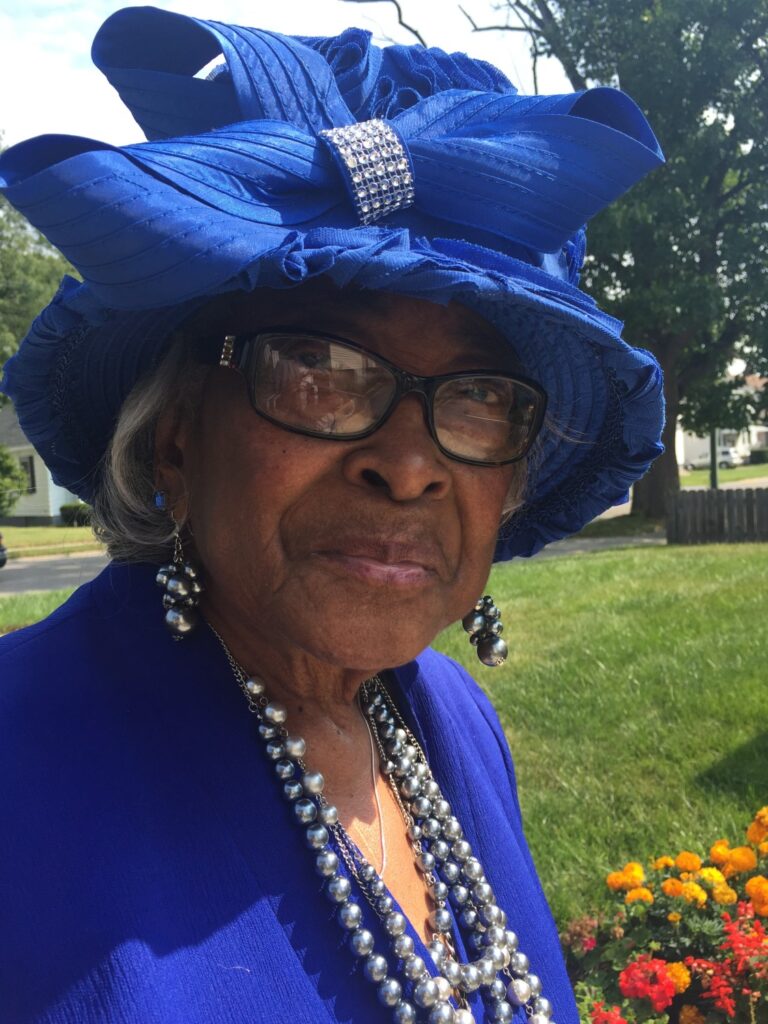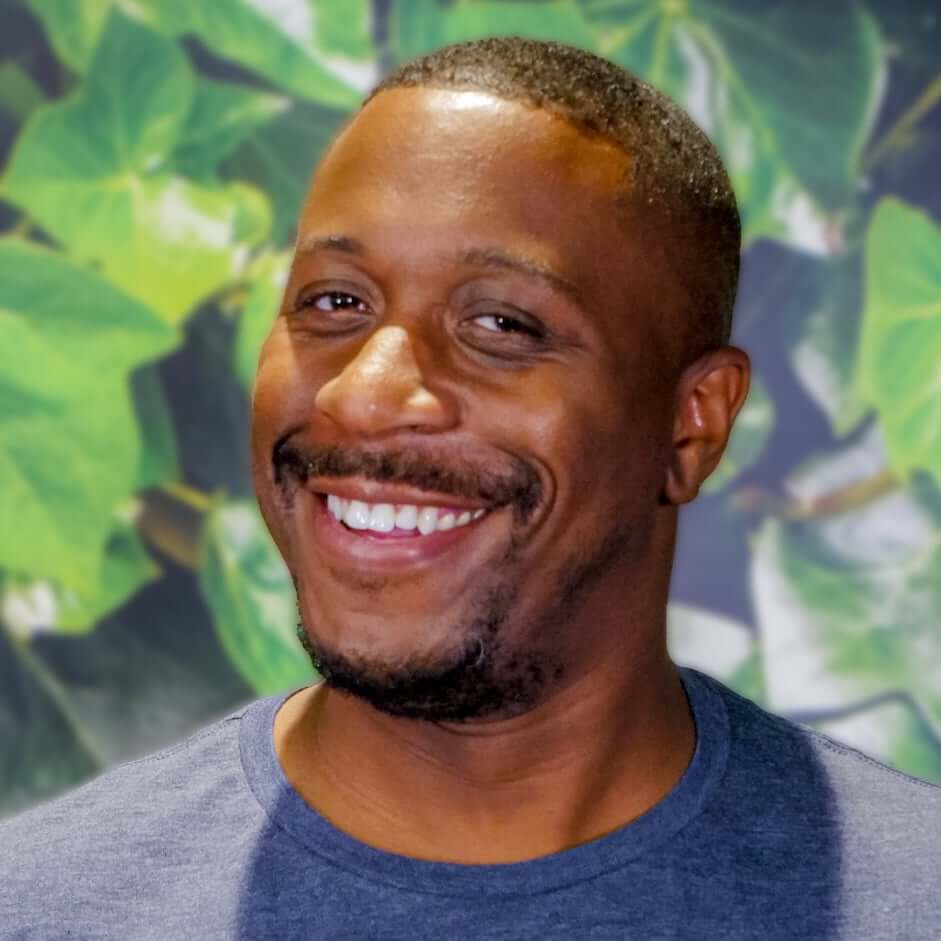This article first appeared on The Sustainable Business newsletter which you can follow on LinkedIn.
As I was looking ahead to this month’s newsletter, I knew I wanted to do something around Women’s History Month. I’ve worked with and been inspired by so many talented women in the sustainability world, and there is no shortage of stories to tell and people to spotlight — the difficult part was choosing amongst them.
In the end, I veered in an unexpected direction. I decided the most powerful piece I could write would be the most personal to me: I want to tell you all about my grandmother, Annie Mae Plant. On the surface, her story may not have much to do with sustainability, or business for that matter. But the more I thought about her, and how she’s inspired me, it became clear that her lessons are deeply tied to the work that I do, and the industry I work in.

Celebrating Women’s History Month with my grandmother, Annie Mae Plant.
A bit of background: my grandmother was born in 1926, although she doesn’t know the exact day of her birth because her birth certificate was lost on the plantation where her mother lived. She was raised by her grandparents on a cotton, peanut, and chicken farm in Dublin, GA. With many of her formative years spent during the Great Depression and then World War II, this was not an easy time for anyone to grow up — particularly for a Black woman in the Deep South.
She has always been the “rock” of our family, which has grown to include her nine children, 13 grandchildren, and an ever-expanding number of great- and great-great-grandchildren. And while my grandmother only finished formal education through the 7th grade, she managed to extract the lessons of honest, hard-work from her upbringing and instill her family with those virtues. Personally, she has been an incredible motivational and inspirational force through my undergraduate studies in mathematics and chemistry, my doctoral studies in neuroscience, and my career as an executive in the sustainable tech world. Having a cheerleader like that was a key part of getting me to where I am today, especially through areas where I often had very few racial peers.
As I thought more about it, I realized that aside from general support and inspiration, my grandmother also helped shape my worldview in ways that directly connect into sustainability.
In fact, despite the fact that she never worked in the industry, there are many ways that my grandmother embodies a model that sustainability needs to follow in order to succeed in the long run:
1. The first point that comes to mind is resource efficiency
As a single parent with nine children in a one-bedroom house, the idea of conservation was crucial to my grandmother.
Hand-me-downs were not a source of shame, but a vital lifeline. Whatever she owned, she took great care of and sought to maximize use as much as possible.
Hand-me-downs were not a source of shame, but a vital lifeline. Whatever she owned, she took great care of and sought to maximize use as much as possible.
Of course, these decisions were not made out of concern for the environment — any green benefits to the world were simply a nice externality of purely economic decisions about financial survival. But that proves an important point that I’ve had to stress throughout my career: reuse and resource efficiency is key to both environmental and economic success. The success of the sustainability movement depends on this message permeating throughout society, because as much as I’d love for the planet’s health to be a driving motivator for everyone, the reality is that widespread adoption of sustainability principles will only happen once businesses see financial incentive.
2. The second sustainability lesson is that of connection and collaboration
If there is a simple answer as to how my grandmother, and my family as a whole, made it through challenging times and circumstances, it is the formation of strong bonds. My grandmother kept her family connected, knowing that collective strength is always stronger than individual strength. That meant not only forming strong personal relationships herself with all of her various family members throughout the expanding generations, but also ensuring those family members could rely on each other as well.
Those same attributes are core to a sustainable business and society as a whole. While I understand why some people don’t like the analogy that a company is a family, in my experiences the strongest sustainable businesses generally do have those powerful personal connections amongst employees. And at scale, connection is the backbone of a sustainable economy. For example, an economy may follow all the best practices of circularity, but if only a small percentage of the population is participating in that economy, the economic and environmental benefits will not scale in a meaningful way. That’s part of the reason why my company, Rheaply, focuses on the importance of visibility when connecting the global value chain in a circular economy. The more visible resources are across organizations, the more you can unlock value via new connections.
3. The final key to sustainability that my grandmother embodies is an unlikely, but important, one: optimism
With the various hardships and discrimination my grandmother experienced, I wouldn’t blame her for becoming bitter; yet, she has always been incredibly optimistic. It’s rooted in her religious faith, and a strong belief in progress. It’s also connected to a love for the outdoors, stemming from her childhood on the farm. Almost every day, she still gets up and goes for a walk outside. She particularly delights in sunflowers, which have become a symbol of strength and joy for my family. Overall, she continues to be grateful for life and for the opportunity to be a part of the world.
In sustainability, we come face-to-face with dire predictions about our future all the time; it’s almost baked into the industry. It is easy to turn nihilistic, or to try to affect change in society by utilizing scare tactics and doomsday scenarios. I by no means want to trivialize the very real problems we face, and I’m not denying that it will take a whole lot of hard work to overcome them. But I truly believe that, without optimism and positivity, we will never create a sustainable world. (Perhaps it was my grandmother speaking when I wrote this piece a few months ago.)
For all of the above reasons and many more, my grandmother remains one of the foremost heroes in my life. Whenever I’m in a tough spot, the idea of “what would my grandmother do?” helps guide me. But I’m also fascinated by the reverse idea as well: I wonder if she was also thinking, growing up in Georgia, “what would my grandchildren do?” I, and we, get to live in a world that she and her generation helped shape — with all that she’s given to me, I want to continue building that world even better, and provide a sustainable blueprint for the next generations to build beyond.
I hope my grandmother inspires you even a fraction as much as she inspires me; even moreso, I hope that her story helps you reflect on your own experiences. We all have impactful women who have helped shape our lives, and our career paths — sometimes in obvious ways, sometimes in unexpected ways. In the comments, I’d love to hear about the women who have inspired you!
